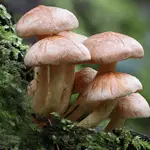In the world of gardening, the choice of fertilizer can significantly impact the health and vibrancy of your flowers. One of the increasingly popular choices among garden enthusiasts is organic flower fertilizers. In this article, we will delve into the world of organic fertilizers, exploring their benefits, types, application methods, and much more.
I. Introduction Organic Flower Fertilizers
A. Definition of Organic Flower Fertilizers
Organic flower fertilizers are derived from natural sources, excluding synthetic chemicals. These fertilizers prioritize the use of organic matter to enhance soil fertility and nurture plants.
B. Importance of Using Organic Fertilizers for Flowers
Choosing organic fertilizers is not just a trend; it’s a commitment to sustainable and eco-friendly gardening practices. The impact on plant health and the environment sets organic options apart.
II. Benefits of Organic Flower Fertilizers
A. Nutrient-Rich Soil
Organic fertilizers enrich the soil with essential nutrients, promoting robust plant growth. The slow-release nature of these fertilizers ensures a steady supply of nutrients over time.
B. Environmentally Friendly
Unlike synthetic fertilizers, organic options are kind to the environment. They reduce the risk of soil and water contamination, supporting a healthier ecosystem.
C. Enhanced Plant Growth and Bloom
Flowers treated with organic fertilizers often exhibit better resistance to diseases and pests. The overall result is a garden bursting with colorful blooms.
III. Types of Organic Flower Fertilizers
A. Compost
Compost, a blend of organic matter, is a staple in organic gardening. It improves soil structure, retains moisture, and provides a spectrum of essential nutrients.
B. Manure-Based Fertilizers
Derived from animal waste, manure-based fertilizers offer a rich source of nitrogen, phosphorus, and potassium. Proper composting is essential to eliminate pathogens.
C. Bone Meal
Bone meal is a slow-release fertilizer rich in phosphorus, vital for flowering plants. It promotes strong root development and enhances flower production.
D. Fish Emulsion
This organic fertilizer, made from fish remains, is a potent source of nitrogen. It’s an excellent choice for promoting lush foliage and vibrant flowers.
IV. How to Choose the Right Organic Fertilizer
A. Understanding Flower Nutrient Needs
Different flowers have varied nutrient requirements. Understanding these needs helps in selecting the right fertilizer for optimal growth.
B. Soil Testing
Conducting soil tests aids in identifying existing nutrient levels, guiding gardeners in choosing the most suitable organic fertilizer.
C. NPK Ratio Considerations
Nitrogen (N), phosphorus (P), and potassium (K) are essential nutrients. Balancing their ratios in organic fertilizers ensures comprehensive plant nutrition.
V. Application of Organic Flower Fertilizers
A. Proper Timing
Applying organic fertilizers at the right time aligns with plant growth stages, maximizing their effectiveness.
B. Correct Dosage
Over-fertilization can be detrimental. Following recommended dosage guidelines prevents nutrient imbalances and potential harm to plants.
C. Techniques for Application
Incorporating fertilizers into the soil, using topdressing, or creating fertilizer teas are common techniques for application.
VI. Common Misconceptions about Organic Fertilizers
A. Slower Results
Organic fertilizers may take longer to show results, but the long-term benefits outweigh the immediacy of synthetic options.
B. Limited Nutrient Availability
Contrary to belief, organic fertilizers provide a broad spectrum of nutrients, fostering holistic plant health.
C. Expense
While initial costs may be higher, the long-term savings from improved soil health and reduced chemical inputs make organic fertilizers cost-effective.
VII. Organic Fertilizer
A. Homemade Compost Tea
Brewing compost tea at home is a cost-effective way to enhance microbial activity in the soil, promoting nutrient absorption.
B. Eggshell Fertilizer
Crushed eggshells are a valuable source of calcium, benefiting plants by preventing issues like blossom end rot.
C. Banana Peel Solution
Infusing banana peels in water creates a potassium-rich solution, ideal for encouraging flower blooming.
Conclusion Organic Flower Fertilizers
In this article, we delved into the world of organic fertilizers, exploring their benefits, types, application methods, and much more. Hope you enjoyed this post.
Latest posts
- What Types of Lettuces Can You Grow?

- How to Plant Onion Seeds for Maximum Germination

- How to Plant Parsnip Seeds for Maximum Germination

- How to Plant Mushroom Seeds for Maximum Germination

- How to Plant Lettuce Seeds for Maximum Germination

- How to Plant Kale Seeds: A Step-by-Step Guide to Maximum Germination Success!

Additional Information
https://en.wikipedia.org/wiki/Organic_farming




